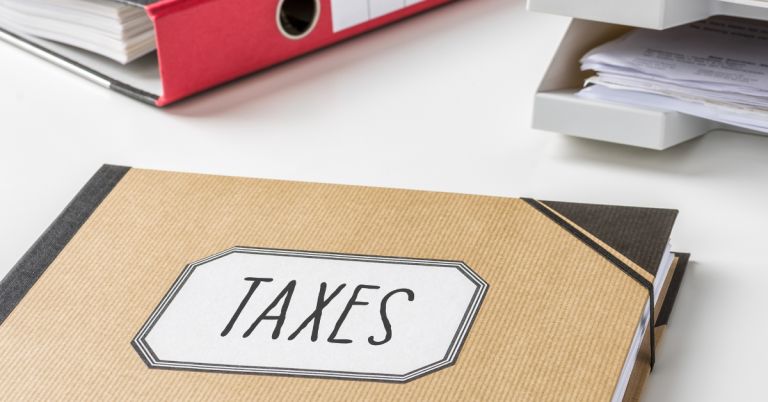How to Simply Manage Year End Accounting For a Limited Company
The end of the financial year is fast approaching. If you run a limited company, you’ll need to file your annual return by 31 December. This includes filing your accounts, which must include your balance sheet, profit and loss account, cash flow statement, and directors’ statements. You can do it yourself, or use the help of an expert accountant.
There are two main ways to file your accounts. They’re both easy, quick, and free. However, there are some differences between them. Which one you choose depends on how much information you want to provide about your company.
Online Accounting
You can file your accounts online via HMRC’s e-Filing system, which is completely free. All you need is access to the internet, and you can log into your company’s accounts directly. You won’t need to pay anything extra to file your accounts; HM Revenue & Customs does all the work for you.
Paper Based Reporting
If you prefer to file your accounts manually, you can download a form from HMRC’s website. You’ll need to complete it, sign it, scan it, and send it to HMRC. Once you’ve done that, you’ll receive a confirmation email. You don’t need to make any payment to file your accounts.
A good accountant should be able to prepare the reports quickly. Make sure yours knows what he or she is doing.

The basics of financial year-end reporting
Financial year end is the last date of the accounting period for corporate taxation purposes. Companies must file accounts with HM Revenue & Customs (HMRC) no later than 31 December each year. Accountants and accountancy firms will typically prepare accounts based on the information submitted by companies. However, there are some exceptions. For example, if a company changes its name during the year it cannot use the old name for filing accounts. If you want to know what to do next, keep reading.
What information must I provide?
You must file a Company Tax Return each year if you are a company and earned profits or incurred losses during the financial year ending 31 December. If you are a company that changes its name, address or principle place of business, you need to file an annual return.
The deadline for filing your tax returns is 30 June. You can file your tax return online via the eServices portal.
Company Tax Return
Your Company Tax Return must include accounts receivable, payable and other liabilities. If you are self-employed, make sure you keep track of expenses and income throughout the year. You’ll want to record every transaction related to your business, including purchases, sales, wages paid out, and anything else that affects your bottom line.
If you fail to file your tax return on time, you risk facing penalties and interest payments. To avoid late fees, you’ll need to complete your returns within 45 days of filing your personal income taxes. If you’re still working on it, you’ve got plenty of time to finish up and send it off.
Statutory Accounts
Your statutory accounts should include all the information required under the Companies Act 2006. This includes a balance sheet, income statements and cash flow statements.
In addition, there are certain sections of the accounts that are mandatory. These include:
• A statement of changes in equity;
• A statement of significant transactions;
• An auditor’s report;
• A notice of appointment of auditors; and
• A copy of the articles of association.
The purpose of statutory accounts is to give shareholders, creditors, regulators and others access to important information about how the company operates.
For example, it provides insight into whether the company is making a profit and paying dividends. It also tells us how much money the company owes to suppliers, customers and employees.
These accounts are prepared every year and are legally binding. If companies do not comply with the requirements, they could face penalties.
What is the financial reporting deadline?
If you are starting up a new company, there are certain things you need to do to ensure it is ready to trade. This includes filing your first set of accounts with Companies House. If you want to know what happens next, read our guide to how long it takes to register a company.
The process involves filling out forms online, paying a small fee, and waiting for Companies House to send you confirmation of registration. Once registered, you will have to file annual accounts, which include information about your finances, such as profit and loss statements, balance sheets, and cash flow projections. These accounts will be submitted to Companies House within nine month of the end of your financial year.
You will need to pay a small fee each year to keep your company active. For example, if your company is formed on January 1st, you will need to pay £50 per annum. However, if you start trading during the following tax year, you won’t have to pay anything.
Once you’ve paid, you’ll receive a letter confirming your registration. You will also find a link to download your certificate of incorporation, which gives you proof of your registration.
What happens if I miss a year-end reporting deadline?
There are fines from both HMRC and Companies House for late tax reporting or payment. Your business might be removed from the register for failing to report, so take your responsibilities seriously. If you are late in filing your accounts, you will receive an automatic penalty letter and be required to pay a fine based on how late they are, as stated below:
How tardy are your reports?
Within one month 1-three months to six months Six plus months
What are my additional reporting responsibilities?
The Goods and Services Tax (GST) is one of the most complex tax systems in India. There are several filing requirements and it is important to understand what you need to submit.
VAT Returns – You need to file VAT returns every year. These filings can be done online or manually. If you choose to use the manual method, you must provide a confirmation statement to each customer who makes a purchase during the period covered by your return.
Sales Tax – Every state imposes sales taxes on goods sold within their borders. In addition, some states impose additional taxes on certain products such as alcohol and tobacco.
Corporate Income Tax – Corporate income tax is imposed on businesses that generate taxable profits. Businesses pay corporate income tax based on the total amount of profit earned during the financial year.
Income Tax Return – Each individual needs to file an income tax return every year. Individuals can either file electronically or manually. For individuals who file electronically, there is no requirement to submit a separate proof of identity document. However, those who file manually must submit a copy of their Aadhaar card along with their application form.
Profits Tax – Profits tax is levied on the net income of a business. Net income refers to the profits left over after deducting expenses incurred in running the business.
Tax Deduction – Some items incur a tax deduction while being used for business purposes. For example, depreciation of assets like computers, vehicles, etc., is deductible against the cost of acquiring these assets.
VAT returns
You might think that filing your VAT return is just a formality, but it’s actually one of the most important things you do. Failing to file your tax returns incorrectly could lead to fines of up to £10,000. Here are some tips on how to make sure you file your returns correctly.
1. Make sure you complete your returns accurately
There are three main types of return:
• A monthly return – This is filed every month and covers sales and purchases made during the previous calendar month.
• An annual return – This is filed annually and covers sales and purchases over 12 months.
• A quarterly return – This is filed quarterly and covers sales and purchases within the previous 3 months.
2. File your returns online
Confirmation Statement
A confirmation statement needs to be filled out every year. This document confirms that the information contained within it is true and correct. If there are changes in ownership, directors, or officers, the registration must be updated accordingly.
The due date for filing your annual confirmation statement is usually one year after your incorporation, but it varies depending on the type of company. For example, companies limited by guarantee do not have to file a confirmation statement. However, some types of companies require a confirmation statement to be filed annually.
There’s an online form where registered companies can upload their confirmation statements into Companies House. You’ll need to fill out the following fields:
Company name
Address
Contact email address
Year end accounting checklist
The year end accounting process involves preparing the financial statements and filing the tax return. A year end accounting checklist should include every document required for both the processes. Here are some of the key documents that you should prepare for the year end accounting process.
1. Profit & Loss Account (P&L): Every company needs to prepare a profit and loss account for each month/quarter/year. You should use this report to understand how well your business performed over the period.
2. Balance Sheet: In addition to the profit and loss account, it is very important to prepare the balance sheet. Prepare the balance sheet for the current quarter and compare it with previous quarters to see whether there has been a change in the value of assets and liabilities.
3. Income Statement: An income statement helps you to analyse the performance of the business. It gives information about the profitability of the business.
4. Cash flow statement: Preparing the cash flow statement is essential because it provides information about the sources and uses of funds.
5. Tax Return: Once the financial statements are prepared, it is time to file the tax return. Filing the tax return is mandatory for companies incorporated under Indian laws.
6. Annual Accounts: Finally, prepare the annual accounts. These reports provide information about the performance of the business over the period.
1. Do your preparation
The final weeks of the financial year are always hectic. You might be working late into the night trying to finish up some tasks, while simultaneously juggling multiple projects. But it doesn’t matter how busy you are, there is one thing you must do before the end of the month: plan ahead.
If you don’t have enough time to prepare, your team will feel overwhelmed and stressed. They’ll start asking questions like “What am I doing next?” and “Why did we put off this project?”. And worst case scenario, they could even decide to take a break. This will affect your productivity, and ultimately, your bottom line.
So what exactly does planning ahead entail? Here are three steps you can follow to make sure you’re prepared for the end of the financial period:
#1 – Set goals
Before you begin, set yourself clear objectives. What is the purpose of your planning process? Is it to ensure you hit your targets? Or do you want to avoid making mistakes? Whatever your goal, write down what you want to achieve.
For example, let’s say you want to increase sales by 10% this quarter. Write down the following:
• Increase customer satisfaction by 5%.
2. Gather your paperwork
Remember that your accounts must be supported by documentation, including income records, bank statements, supplier statements of account, invoices, and receipts. Gather all of your paper and digital documents so that you are prepared if any portion of your financial reporting is contested.
3. Chase overdue payments
Chase late payment policies are meant to protect you against unexpected financial emergencies. But what happens when you’re already struggling financially? We asked some experts how to deal with those situations. Here’s what they had to say.
(1) Make sure all unpaid invoices are paid before the end of the calendar year. This way, you won’t owe interest on the amount owed.
(2) If you’re unable to pay off your entire balance within one month, make sure you bank enough payments to cover the remainder of the bill. You’ll likely incur additional fees if you don’t do this.
(3) Don’t wait too long to file a complaint with your collection agency. A delay could mean that you lose out on the chance to negotiate a lower payment.
4. Sort out your expenses
If you’re like most people, you’ve probably been spending money without really knowing where it goes. You might know how much you earn, but what about the rest? How do you keep track of everything you spend? Here are four ways to sort out your finances.
1. Track all your purchases
You don’t have to use a spreadsheet – there are plenty of apps designed specifically for tracking your purchases. Some allow you to link up receipts directly into the app, while others provide a list of transactions. If you prefer pen and paper, you could write down every purchase you make, noting what it costs, where you bought it from, and what you paid. This way, you’ll always have proof of exactly what you spent your hard-earned cash on.
2. Claim any item purchased ‘wholly and entirely’
When you buy something, you usually pay for both the product itself and the delivery charges. But did you know that some retailers offer discounts if you pay upfront? For example, if you buy a TV online, you could save £50 off the price if you pay within 14 days. So, if you’re buying a big ticket item such as furniture or electronics, check whether you qualify for any discount schemes.
3. Calculate your car mileage
If you commute regularly, it makes sense to take advantage of any deals offered by your employer. Many companies give employees free petrol or even reimburse travel expenses. And if you work from home, you could benefit from any deals offered by your broadband provider. To calculate your average daily miles driven, simply multiply your total number of miles by 24. Then divide by 365 to find out how many litres of fuel you used per day.
5. Cross-check accounts against your records
A common mistake people make is forgetting to cross-check their bank accounts against their credit card statements. If you are paying off one of your cards, it could mean that your balance is actually lower than you think. You might even find yourself owing money to a different person than you thought. This happens because banks often charge interest on balances that aren’t paid within 30 days of being charged.
If you’re having trouble remembering where you put things, use Evernote or OneNote. These apps allow you to organize your notes into notebooks and folders. They’ll help you remember important dates, times, and places.
6. Update your employee data
Employee data is one of the most important pieces of information you need to keep up-to-date. You don’t want to make costly mistakes because of outdated information. In addition, it helps you track costs and expenses properly.
You can use our Employee Data Checklist to ensure you’re keeping all the necessary information updated. This checklist covers everything from basic contact info to payroll and benefits.
7. Make back-ups
The best way to ensure that you don’t lose your work is to make regular backups of your data. You might want to do this even if you’re just working on a personal project, because there are some things that could happen to your computer that would render it unusable without a backup copy. If you’re working on something important, you’ll probably want to make multiple copies of your files – one on another disk, and maybe one on a network server too.
You can use a variety of methods to store your data safely, including making a CD/DVD or DVD/BluRay disc, storing it online, or backing it up to a USB stick. In the case of a laptop, you can save everything to an external hard drive or a cloud storage service like Dropbox, OneDrive, or Google Drive.
If you’re working on a large project, you might want to consider getting a NAS device, such as Synology DS215j, which lets you connect several computers and devices to a single unit. This makes it easy to access your files across different machines, and you can easily back up your entire system to a remote location.
Frequently Asked Questions
If my business accounts or tax return are late, will I have to pay a fine?
Late submission of company returns to either HMRC or Companies House incurs fines. There are varied penalties based on the amount of lateness and the type of return.
When is the last day to file a Company Tax Return and pay Corporation Tax?
There are different due dates for filing a Company Tax Return and paying Corporation Tax.
Pay your Corporation Tax bill or tell HMRC that the company doesn’t owe any tax nine months and one day after the end of its tax accounting period.
Send a Company Tax Return to HMRC 12 months after the end of the company’s tax accounting period.






